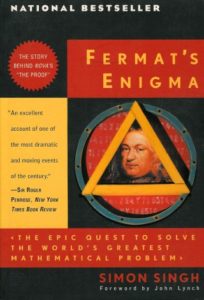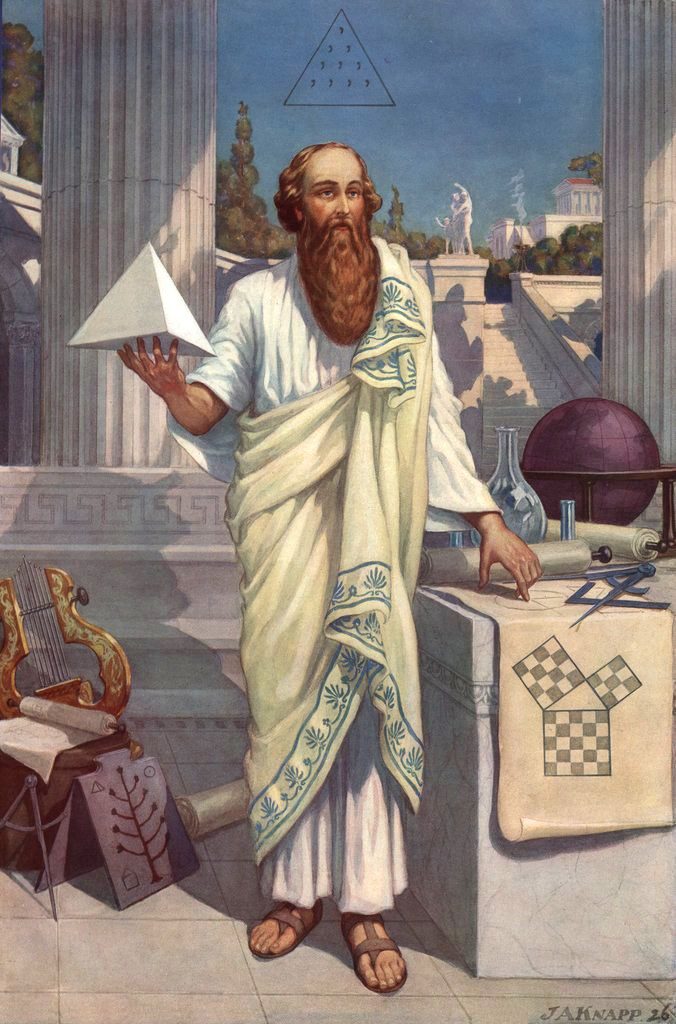Pythagoras on the Purpose of Life and the Meaning of Wisdom
INSPIRATIONAL, 11 Jun 2018
Maria Popova | Brain Pickings – TRANSCEND Media Service
Abiding insight into the aim of human existence from the man who revolutionized science and coined the word “philosopher.”
 The Greek polymath Pythagoras (c. 570–c. 495 BC) ignited the golden age of mathematics with the development of numerical logic and the discovery of his namesake theorem of geometry, which furnished the world’s first foothold toward the notion of scientific proof and has been etched into the mind of every schoolchild in the millennia since. His ideas went on to influence Plato, Copernicus, Descartes, Kepler, Newton, and Einstein, and the school he founded made the then-radical decision to welcome women as members, one of whom was Hypatia of Alexandria — the world’s first known woman astronomer.
The Greek polymath Pythagoras (c. 570–c. 495 BC) ignited the golden age of mathematics with the development of numerical logic and the discovery of his namesake theorem of geometry, which furnished the world’s first foothold toward the notion of scientific proof and has been etched into the mind of every schoolchild in the millennia since. His ideas went on to influence Plato, Copernicus, Descartes, Kepler, Newton, and Einstein, and the school he founded made the then-radical decision to welcome women as members, one of whom was Hypatia of Alexandria — the world’s first known woman astronomer.
Alongside his revolutionary science, Pythagoras coined the word philosopher to describe himself as a “lover of wisdom” — a love the subject of which he encapsulated in a short, insightful meditation on the uses of philosophy in human life. According to the anecdote, recounted by Cicero four centuries later, Pythagoras attended the Olympic Games of 518 BC with Prince Leon, the esteemed ruler of Phlius. The Prince, impressed with his guest’s wide and cross-disciplinary range of knowledge, asked Pythagoras why he lived as a “philosopher” rather than an expert in any one of the classical arts.
Pythagoras, quoted in Simon Singh’s altogether fascinating Fermat’s Enigma: The Epic Quest to Solve the World’s Greatest Mathematical Problem (public library), replies:
Life… may well be compared with these public Games for in the vast crowd assembled here some are attracted by the acquisition of gain, others are led on by the hopes and ambitions of fame and glory. But among them there are a few who have come to observe and to understand all that passes here.
It is the same with life. Some are influenced by the love of wealth while others are blindly led on by the mad fever for power and domination, but the finest type of man gives himself up to discovering the meaning and purpose of life itself. He seeks to uncover the secrets of nature. This is the man I call a philosopher for although no man is completely wise in all respects, he can love wisdom as the key to nature’s secrets.
Complement with Alain de Botton on how philosophy undoes our unwisdom, then revisit other abiding mediations on the meaning and purpose of life from Epictetus, Toni Morrison, Walt Whitman, Richard Feynman, Rosa Parks, Fyodor Dostoyevsky, and Martha Nussbaum.
_________________________________________
 Brain Pickings is the brain child of Maria Popova, an interestingness hunter-gatherer and curious mind at large obsessed with combinatorial creativity who also writes for Wired UK and The Atlantic, among others, and is an MIT Futures of Entertainment Fellow. She has gotten occasional help from a handful of guest contributors.
Brain Pickings is the brain child of Maria Popova, an interestingness hunter-gatherer and curious mind at large obsessed with combinatorial creativity who also writes for Wired UK and The Atlantic, among others, and is an MIT Futures of Entertainment Fellow. She has gotten occasional help from a handful of guest contributors.
Go to Original – brainpickings.org
DISCLAIMER: The statements, views and opinions expressed in pieces republished here are solely those of the authors and do not necessarily represent those of TMS. In accordance with title 17 U.S.C. section 107, this material is distributed without profit to those who have expressed a prior interest in receiving the included information for research and educational purposes. TMS has no affiliation whatsoever with the originator of this article nor is TMS endorsed or sponsored by the originator. “GO TO ORIGINAL” links are provided as a convenience to our readers and allow for verification of authenticity. However, as originating pages are often updated by their originating host sites, the versions posted may not match the versions our readers view when clicking the “GO TO ORIGINAL” links. This site contains copyrighted material the use of which has not always been specifically authorized by the copyright owner. We are making such material available in our efforts to advance understanding of environmental, political, human rights, economic, democracy, scientific, and social justice issues, etc. We believe this constitutes a ‘fair use’ of any such copyrighted material as provided for in section 107 of the US Copyright Law. In accordance with Title 17 U.S.C. Section 107, the material on this site is distributed without profit to those who have expressed a prior interest in receiving the included information for research and educational purposes. For more information go to: http://www.law.cornell.edu/uscode/17/107.shtml. If you wish to use copyrighted material from this site for purposes of your own that go beyond ‘fair use’, you must obtain permission from the copyright owner.
